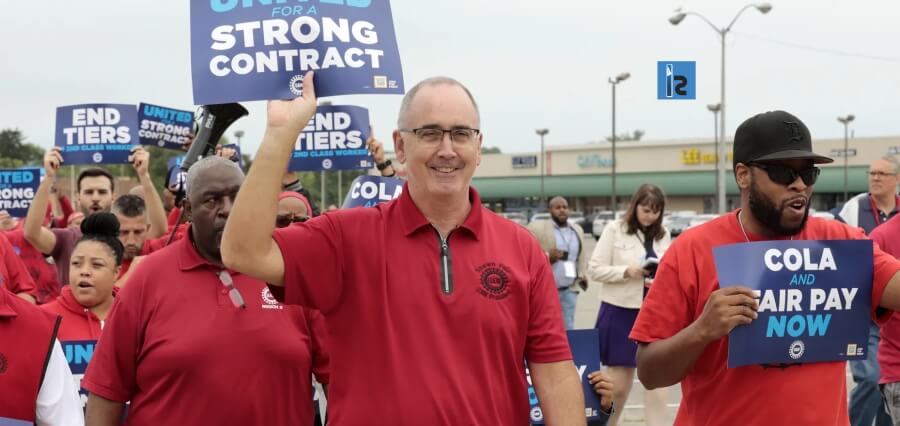Around 3,900 members of the United Auto Workers (UAW) at Mack Trucks are set to go on strike after a majority rejected a tentative agreement reached last week. The vote saw 73% of UAW members opposing the deal. Workers at facilities in Pennsylvania, Maryland, and Florida are scheduled to strike starting at 7 a.m. Monday.
This strike adds to the ongoing labor unrest involving more than 25,000 UAW members at General Motors, Ford, and Stellantis. The targeted strikes began on September 15 and have since expanded.
The Mack Trucks deal was seen as a potential test of workers’ willingness to ratify an agreement that fell short of UAW President Shawn Fain’s expectations for record contracts, including hourly pay increases, equal pay for equal work, inflation protection, and shorter work weeks.
Some workers described the Mack Trucks deal as “disgraceful” and an “insult” compared to expectations and ongoing negotiations with the Big Three automakers. While Mack Trucks is a separate entity, some workers anticipated similar benefits as their counterparts at the Detroit automakers.
The tentative agreement with Mack Trucks included a roughly 19% wage increase over a five-year deal, $3,500 ratification bonuses, increased 401(k) company payments, and other benefits. However, it did not address key demands such as the elimination of wage tiers, reinstatement of traditional pensions, cost-of-living adjustments, or shorter work weeks.
UAW negotiators with the Detroit automakers have sought a 40% pay increase, cost-of-living allowances, job security, work/life balance, and other benefits. UAW President Shawn Fain stated that the union remains committed to exploring all options for reaching an agreement, indicating that further negotiations are possible.
Mack Trucks President Stephen Roy expressed disappointment at the decision to strike, emphasizing the company’s commitment to the collective bargaining process and its confidence in reaching an agreement that balances competitive wages and benefits with the company’s stability.


